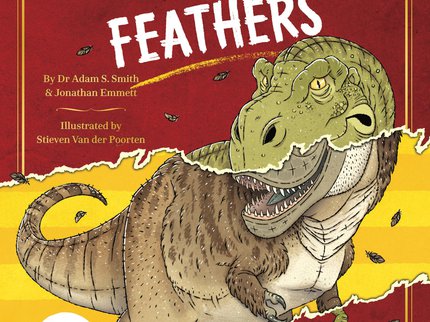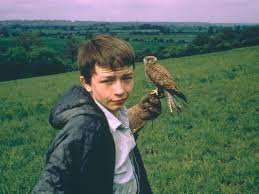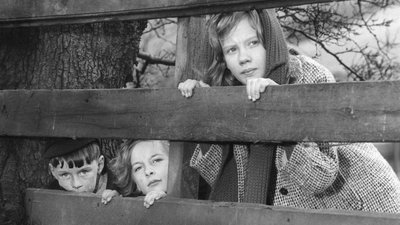
Reading & Libraries
Tyrannosaur's Feathers with Jonathan Emmett
Join author Jonathan Emmett for an amusing and informative look at how and why T. rex’s appearance …
We're always looking to improve your experience. Please Email us your feedback.
Writer Andrew Graves looks at two examples of working class literature that became cinematic gold in this introduction to Kes and Whistle Down the Wind.


When I was twelve I got to watch Ken Loach’s Kes (1969) for the very first time. Though a colour production, I saw it on a tiny black and white portable telly, the reception was rubbish and I had to sit within inches of the screen as the sound was going, but nevertheless I was transfixed. I was drawn in to its very ordinary, all too recognisable world of smoking factory chimneys, heaving slag heaps and grey narrow streets of beleaguered crowded communities. The story, ripped from the pages of Barry Hines’s debut novella A Kestrel for a Knave, deals with fifteen-year-old Billy Casper, a fatherless, bullied schoolboy, soon to be turfed out of an inadequate education system into the harsh relentless industrial certainty of working class Barnsley. His only escape from this dawning, penny-pinched existence comes in the form of a young hawk he discovers and rears; a handy metaphor representing the young protagonist’s yearning for freedom.
Hines, himself partly written off by the powers that be, knew of what he spoke, basing much of the book on his own experiences of growing up, and the authenticity of the text rings out. His no-nonsense prose style is wonderfully poetic yet stripped down and unhampered by sentimentality, it’s as beautiful and rich as it is downtrodden and worldly-wise.
Faced with an uncaring society which refuses to see Billy’s potential, an embittered older brother and a mother who doesn’t seem to care, it’s never going to end well for Casper and events creep together causing a tragic climax in both novella and screen adaptation. Though known for his politics, with Kes Ken Loach appears to transcend any more obvious left or right viewpoints, its universal themes play out as entertaining yet grim poetry.
Another cinematic production which fascinated me as a child was Bryan Forbes’s Whistle Down the Wind (1961). Based on the book of the same name by Mary Hayley Bell, mother of the movie’s eventual star Hayley Mills (who is an absolute delight in her role as young Kathy) it relates the story of three farm children who discover an escaped convict hiding in their barn, whom they mistake for Jesus.
Bell, who unlike Hines had come from a very privileged background, was still able to present a convincing story concerning rural livelihoods, faith and loss of innocence. Compared to the silver screen version, the book reads more as charming and gentle than actively political? it is still an interesting modern fable, plentiful with observations about life at that time. In the hands of director Forbes though, perhaps in order to cash in on the explosion of British New Wave productions, the action is shifted ‘up north’ and the tone of the original novel is altered into something grittier and sharper. Kathy’s journey into the beginnings of adulthood is brought into heart-breaking sharp relief when her shattered belief in the Bible is juxtaposed with the convict’s newly acquired faith in humanity.
And yet it is as endearing as it is thought-provoking and prophetic. The film, at least, becomes in part an examination of the ineffectiveness of organised religions or other bodies to enact real change on communities, particularly rural or poorer ones. But it is also a wondrously, funny, touching and moving piece of cinema, which for once shifts the working-class perspective from the town or city to the countryside. There are unforgettable performances from Alan Bates as the escaped criminal and all three child actors, especially little Roy Hodder as Jackie with his immortal line ‘That’s not Jesus, it’s just some fella’. Beautifully shot, the production unrolls like a kitchen sink parable, much of its imagery expertly borrowed from the Easter story, which helps create one of the most engaging, atmospheric and charming movies from that or any other era.

Andrew Graves is a poet and writer from Nottingham, and the author of Welcome to the Cheap Seats: Silver Screen Portrayals of the British Working Class.